Most Forgiving Wedges 2025
We review the most forgiving wedges on the market so you can find the right option for your game
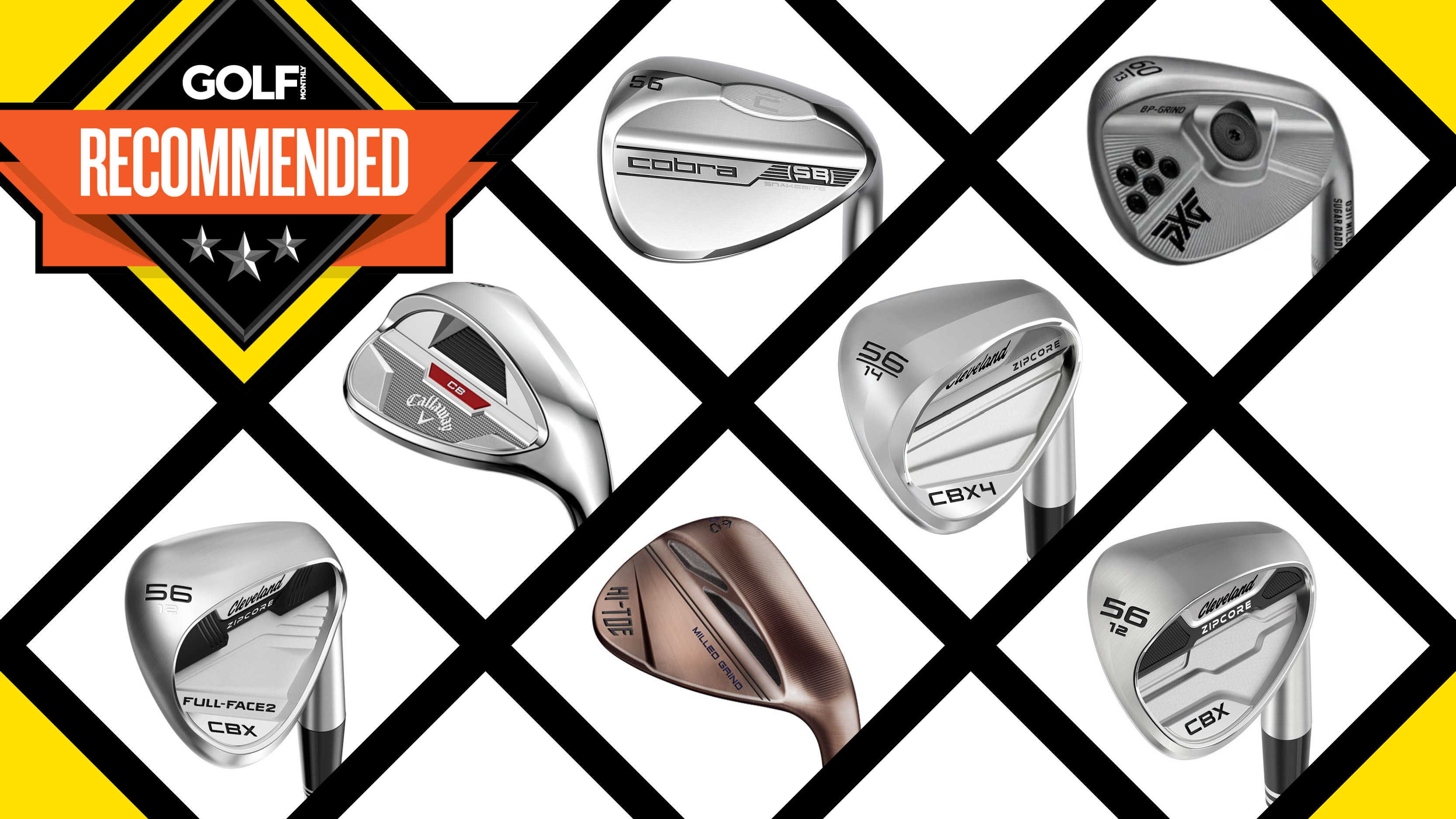

Given that your wedges are your scoring clubs it’s important that they work well for you.
While many of today’s models are sold on their ability to deliver more spin or to provide a softer feel around the greens, there’s a good chance that a little more forgiveness is what you really need. It’s an attribute we readily look for in the best driver or the best irons, but perhaps one that is overlooked when it comes to wedges.
But consider, getting repeatable contact on your pitches and chips can be just as elusive as finding the center of the club face when hitting a full shot. So if you’re struggling with consistency from say 80 yards and in, one of the most forgiving wedges will provide that additional margin of error you need. The result should be a growing confidence as you get nearer to the hole, resulting in lower scores and a reduced handicap.
We’ve tested a huge number of wedges in recent times and as such have put together a range of guides including the best golf wedges for mid handicappers, the best golf wedges for beginners and the best golf wedges for chipping. But if it’s forgiveness you’re after, then you’ve come to the right place - below are our favorite wedges for those who need some extra help with the short shots.
The Quick List
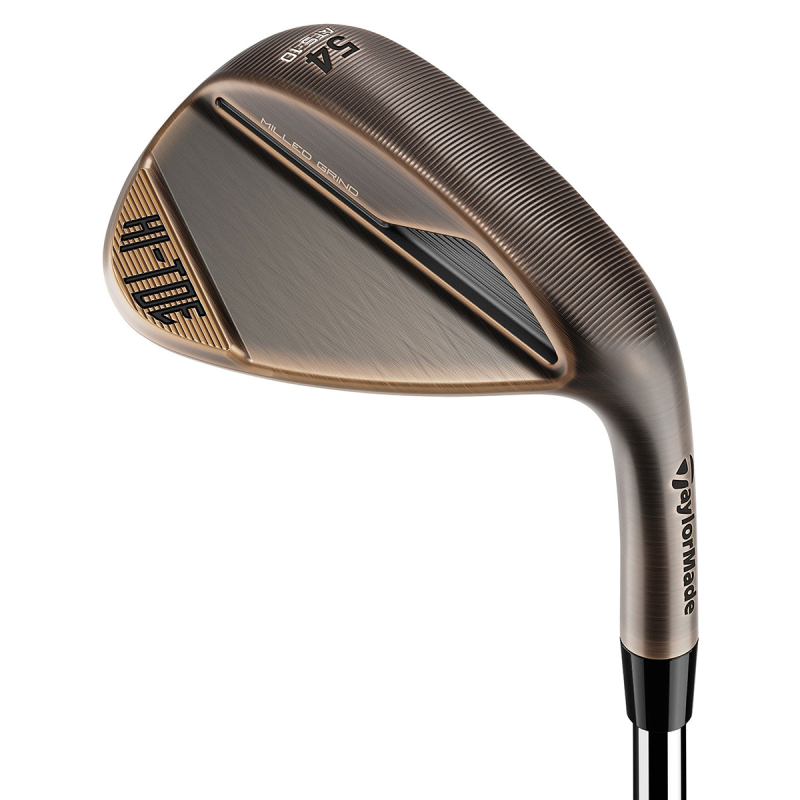
The Hi-Toe 4 is a workable, versatile wedge and comes in a range of grind and bounce options - we also think the bronze finish looks awesome.
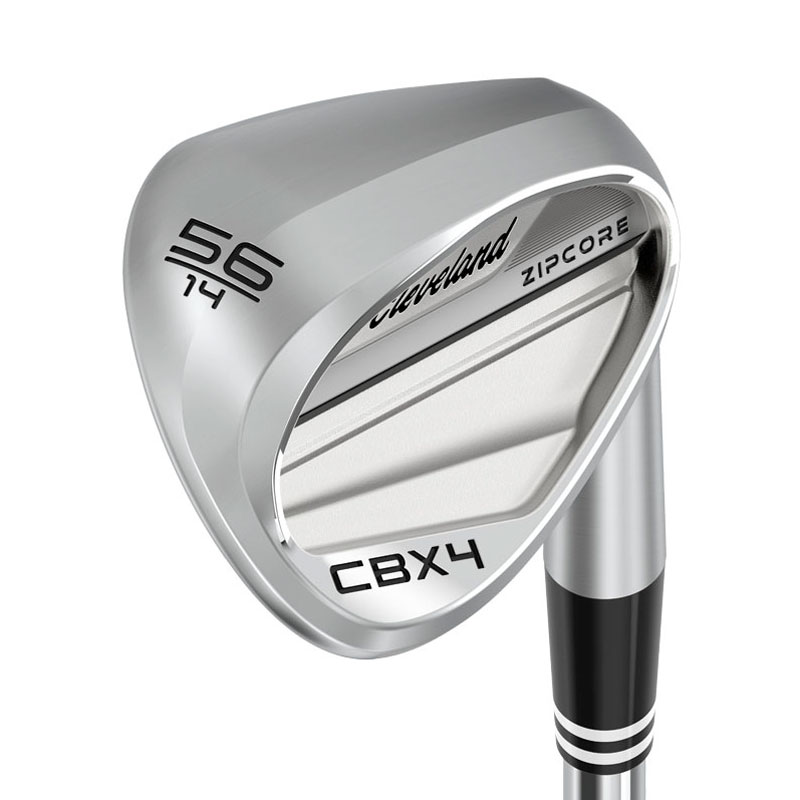
Cleveland combine performance and forgiveness in the CBX 4 Zipcore, a wedge aimed at the mid to high handicap players.
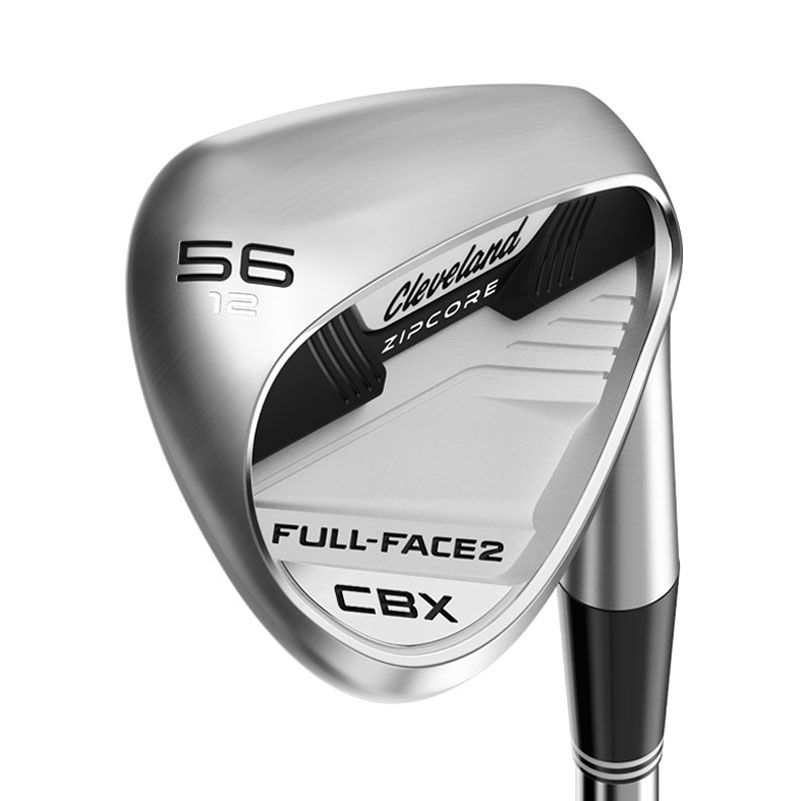
The cavity back Cleveland CBX Full-Face 2 wedge blends in better with today's modern sets for mid to high handicappers. Provides forgiveness and control.
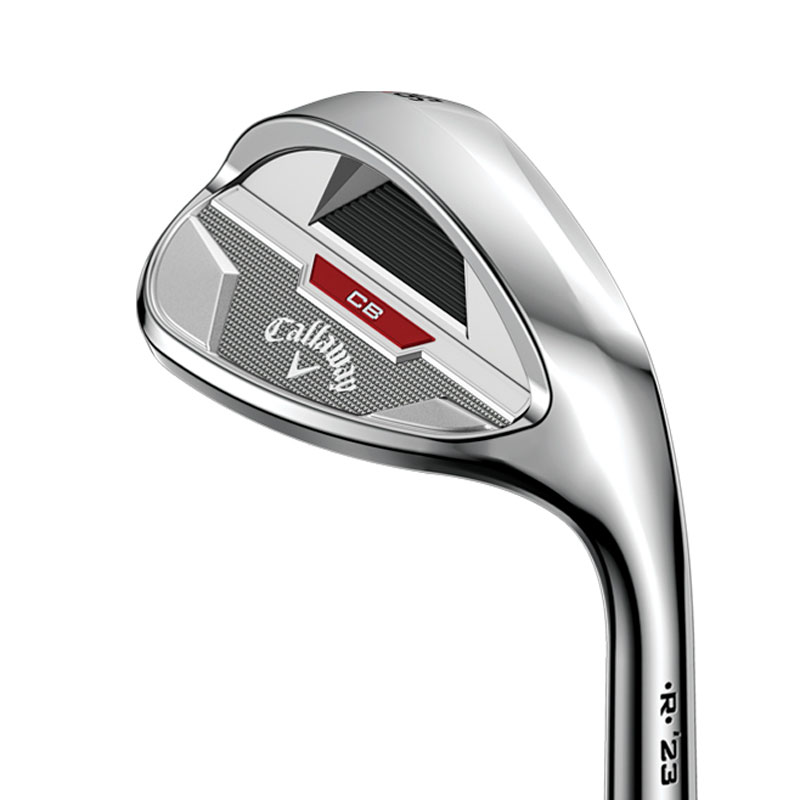
Callaway's CB wedge is incredibly forgiving, specifically designed for maximum ease of use when pitching and chipping. Turf interaction is great and it's performance is consistent from a range of lies.
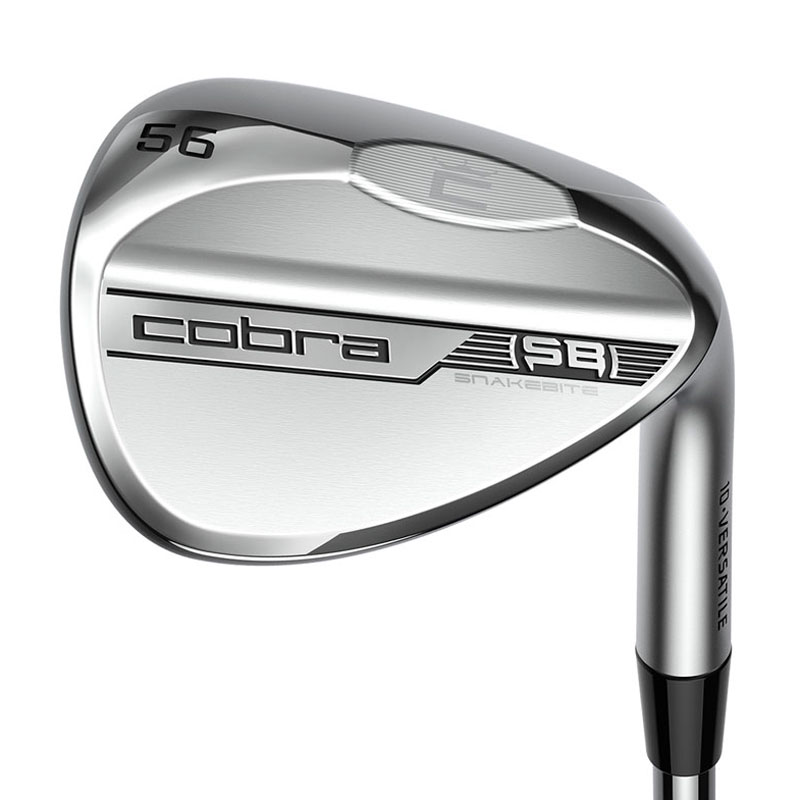
Without doubt the coolest name on this list, the Snakebite wedge from Cobra provides forgiveness and great feel so your inconsistent short game wont come back to bite you.
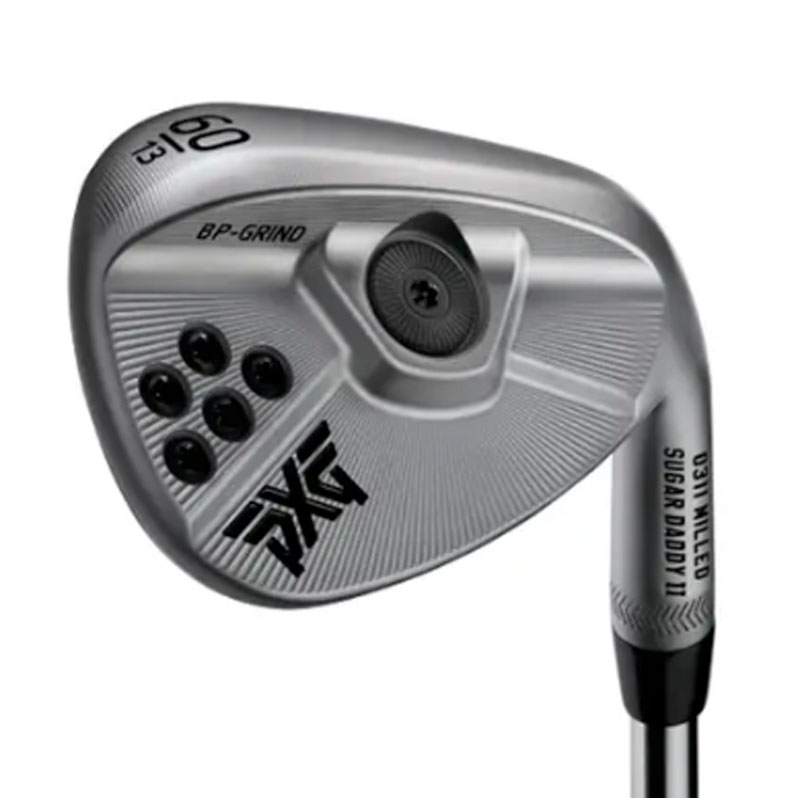
The Sugar Daddy II is an improvement on its predecessor. The extra grind option as well as the unique levels of adjustability make it a highly versatile wedge and one that would stack up against any on the market.
Most Forgiving Wedges
Top pick
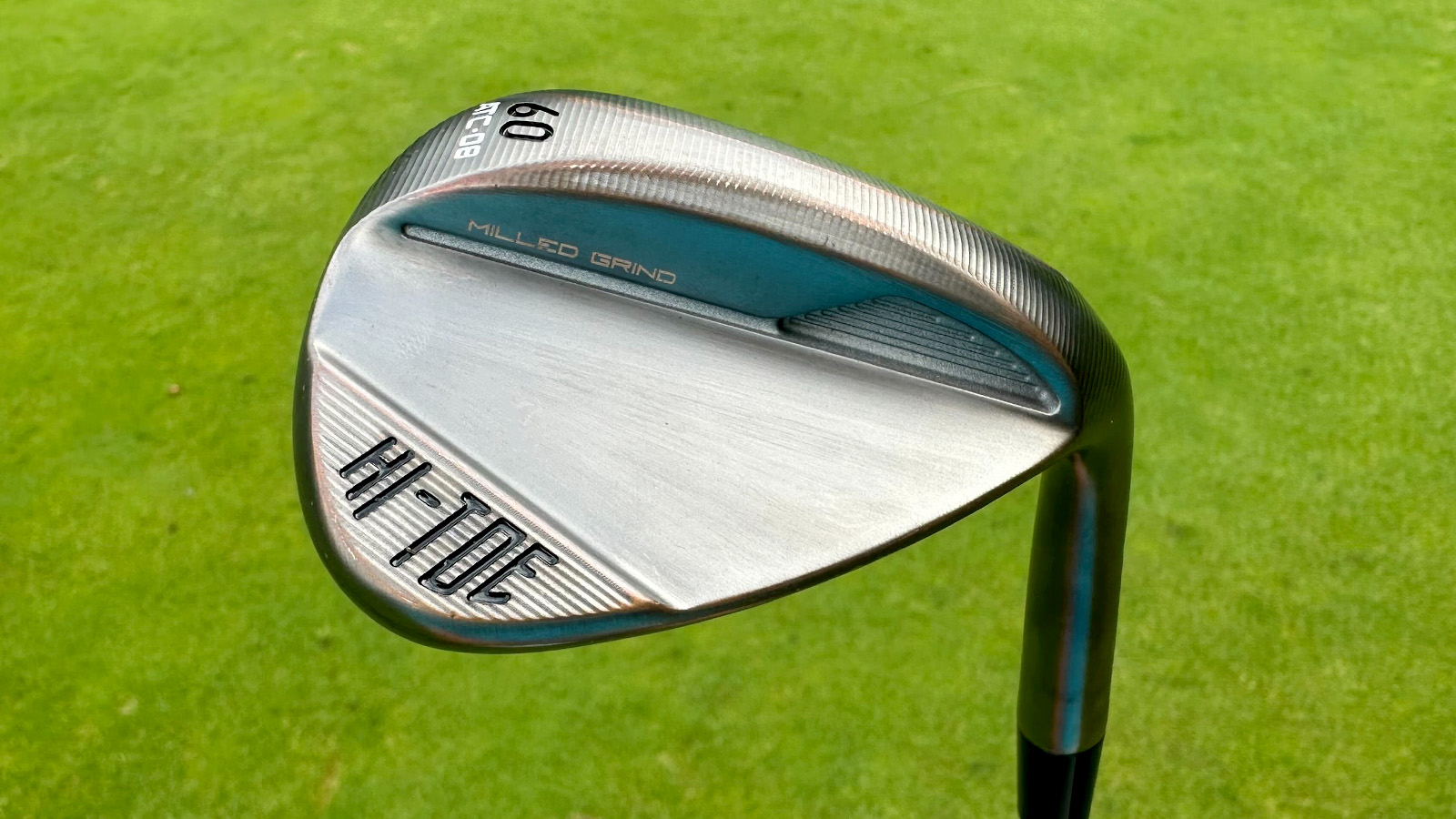
Specifications
Reasons to buy
Reasons to avoid
The Hi-Toe 4 shares the face and groove pattern with TaylorMade’s MG4 wedges. This means comparable amounts of spin but with a head shape that’s more forgiving.
Certainly the Spin Tread technology delivers plenty of control from a variety of lies. We were impressed with just how much spin we could generate from both fairway and rough.
Forgiveness comes in the form of full-face groves and a rounded leading edge. Combined we found that it led to clean and more consistent contact. We also appreciated how the laser etching on the face repealed water and as a result added spin in wet and damp conditions.
Offered in a number of loft and bounce options, the Hi-Toe 4 is a forgiving club that offers bags of spin, making it a good match for a range of abilities.
- Read our full TaylorMade Hi-Toe 4 Wedge review
Best spin control
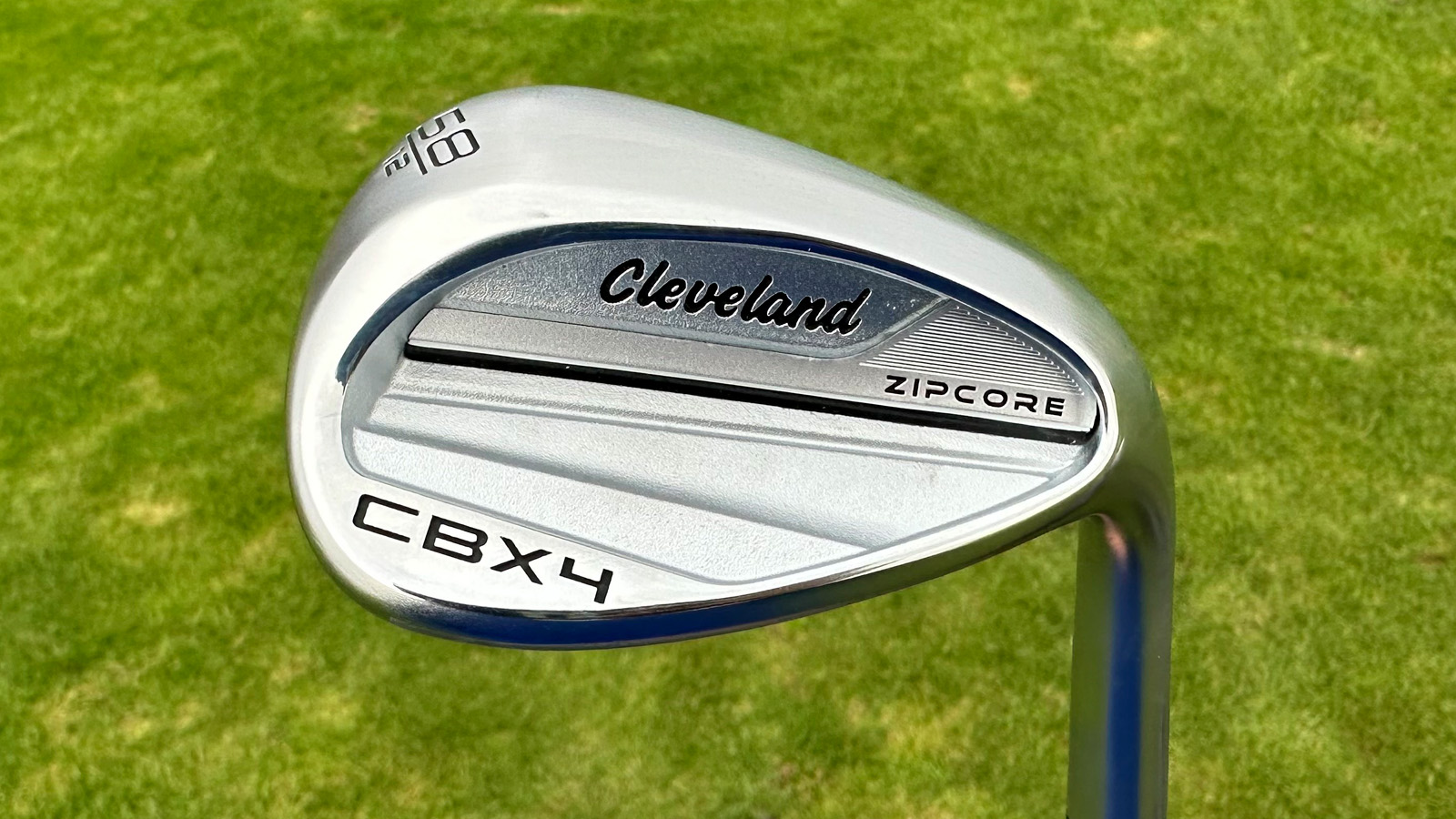
Specifications
Reasons to buy
Reasons to avoid
The CBX 4 Zipcore borrows from Cleveland’s RTX6 wedges but instead of a steel hosel uses one that’s designed to be lightweight and with vibration demeaning properties. By saving weight in this area Cleveland has been able to redistribute it across the toe and higher on the face, both of which improve the club’s MOI, making for a more stable face through impact.
Additional help is offered via a larger head that should suit higher-handicap golfers but not appeal to those who prefer a more refined looking wedge. That said, it delivered a great feel on full shots while impressing us around the greens with the amount of spin we were able to produce.
It’s offered in three different grinds and a number of lofts, from 44 degrees to 60 degrees.
- Read our full Cleveland CBX 4 Zipcore Wedge Review
Best full face
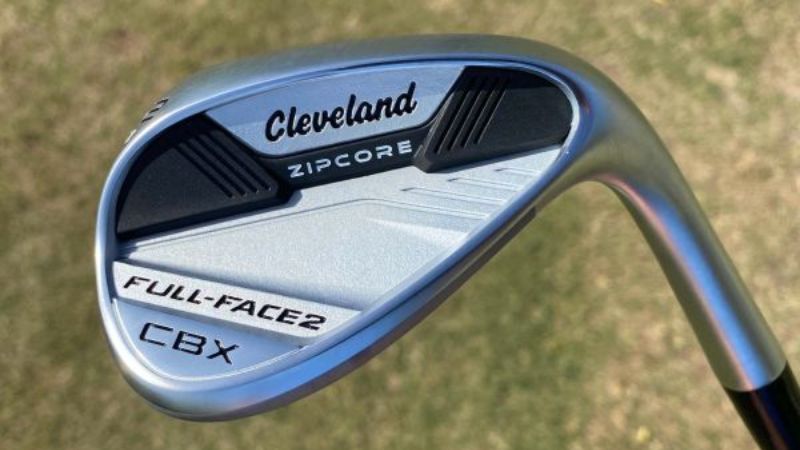
Specifications
Reasons to buy
Reasons to avoid
As the name states, this is another wedge that features grooves that run across the full width of the club face.
It’s a design feature that can be polarizing but we were impressed with the feel during our testing, a rebuke to the oft-repeated opinion that full-face wedges are lacking in this area. The inclusion of a TPU gel insert certainly didn’t hurt, helping to provide the aforementioned feel and a nice audio feedback through the strike.
Cleveland has equipped the Full-Face 2 wedges with different sole grinds depending on the loft. Lower lofts get a full sole grind for extra forgiveness, while those with higher lofts use a c-shaped sole that delivers more relief at both the heel and the toe. Combined with the forgiving cavity back design it adds up to one of the best golf wedges for beginners.
- Read our full Cleveland CBX Full-Face 2 Wedge Review
Most forgiving
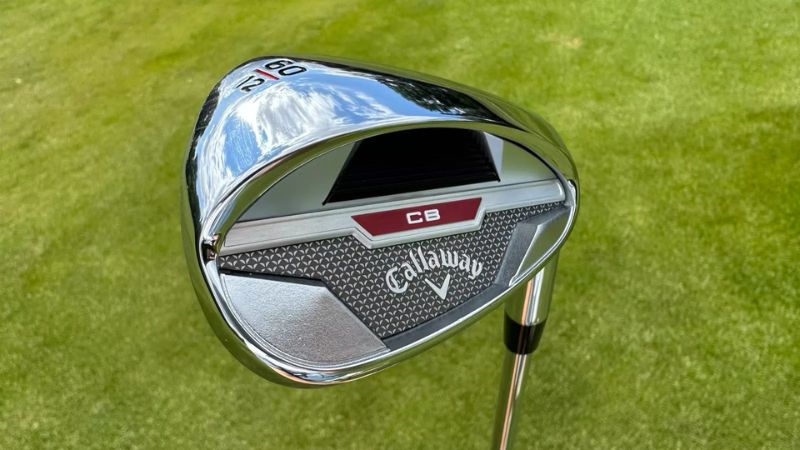
Callaway CB Wedge on a grassy background
Specifications
Reasons to buy
Reasons to avoid
The CB is another cavity back design aimed at providing maximum forgiveness for those who are struggling a little with their wedge game. And like the Cleveland CBX Full-Face wedge it also employs full face grooves, but only on the higher loft options. Combined with the wide sole, we found that it meant bags of spin, especially from bunkers.
All lofts benefit from Callaway’s ‘face blasted’ grooves, which it also uses on its more expensive Jaws Raw wedge. In essence it’s a rougher face that helps to generate some additional spin.
Given that these wedges are positioned at newer or higher-handicap golfers, there’s plenty of bounce to help offer forgiveness. That said, we didn’t struggle to slide the club under the ball on tighter lies, making them one of the best high bounce wedges we’ve tested to date.
- Read our full Callaway CB Wedge Review
Best looking
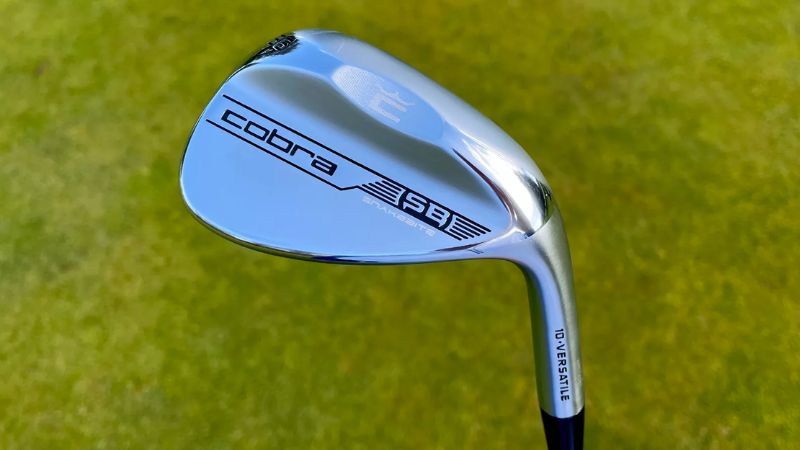
Specifications
Reasons to buy
Reasons to avoid
Super shiny and especially forgiving, the Snakebite wedges use progressive groove technology to help deliver plenty of spin and feel. On the lower lofted wedges you get traditional grooves and pretty classic head shape, while the lofted wedges opt for full-face groves and a wider, shallower shape.
We found this translated to a set of wedges that work across a range of lies and conditions, providing a degree of versatility that better players will appreciate, while still offering a level of forgiveness that will help breed confidence in anyone’s short game.
Offered in three grinds and lofts from 48 degrees to 60 degrees, there should be enough variety for these clubs to find a place in most bags. And if the chrome finish isn’t for you, they also come in a far more muted black.
- Read our full King Cobra Snakebite Wedge Review
Best adjustability
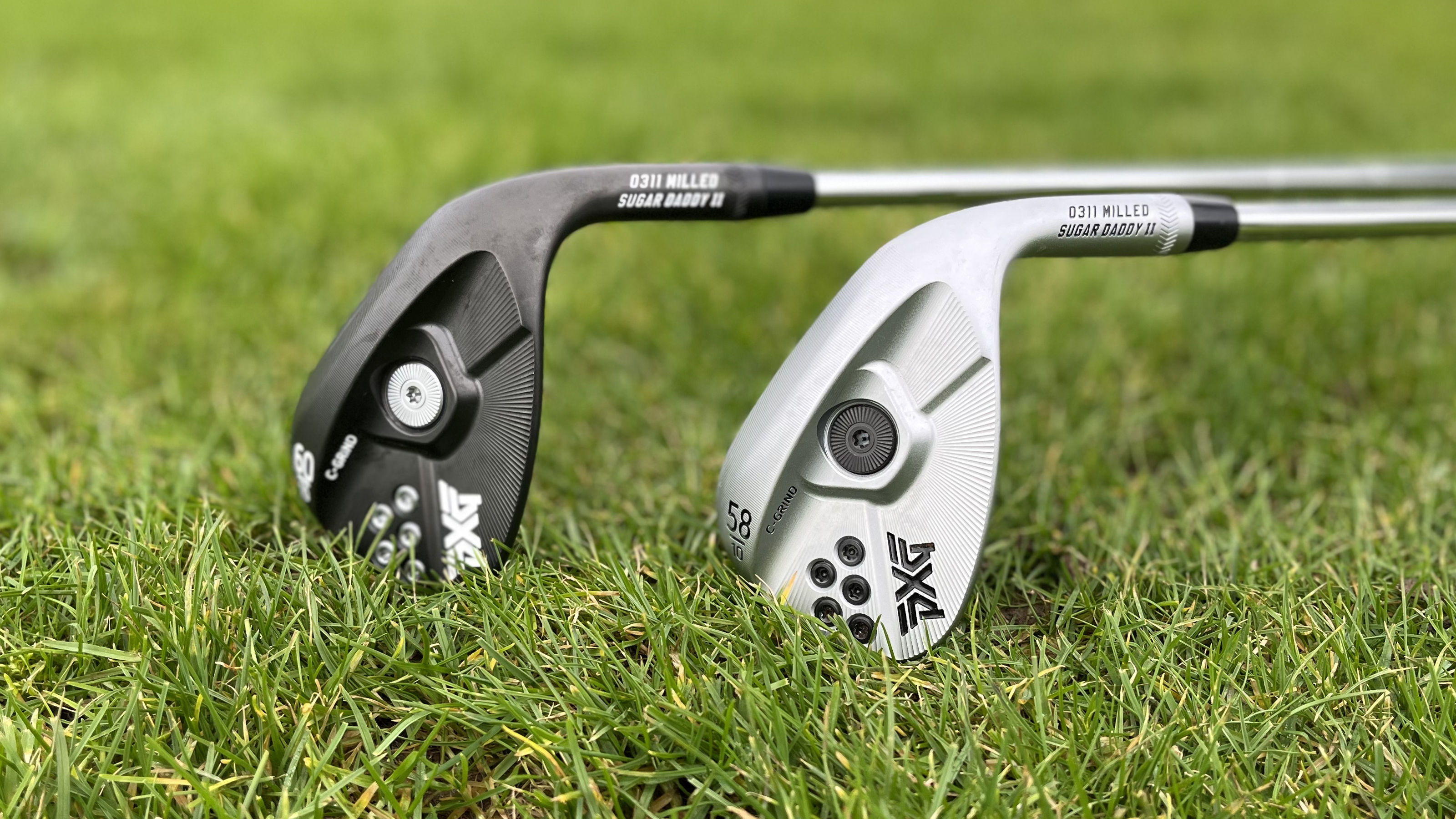
Specifications
Reasons to buy
Reasons to avoid
You certainly know when you have a PXG club in your hands. Visually they stand alone and have both their fans and their detractors. But regardless of how you feel about its looks, we’d suggest that the updated Sugar Daddy wedges are an improvement on the previous model, certainly when it comes to forgiveness.
Gone is the teardrop shape, replaced with a toe-high design that we feel is both more forgiving but also one that improves playability. The model is offered with two sole options, a 13º BP-Grind and a 10º C-Grind. The former works better if you play on softer golf courses, while the latter is well-suited to firmer conditions.
As you’d expect, PXG’s adjustable weight technology is again present. This allows you to fine-tune the club’s weighting to suit your requirements. And it works. We were able to add both consistency and forgiveness to our shots with a few tweaks.
- Read our full PXG Sugar Daddy II Wedge
How we test
Our wedge testing is headed up by Golf Monthly Staff Writer Sam De'Ath, a former competitor on the EuroPro and Clutch Pro Tours.
Employing a comprehensive approach, we review the clubs over a number of rounds and practice sessions, taking into account different playing conditions as we put them through their paces. For wedges this means hitting a variety of full shots, pitches and chips from varying lies to assess how they perform. Every member of the Golf Monthly team is an avid golfer and as such, knows what does and doesn't make for a good wedge.
From here we can create unbiased reviews with the aim of helping you make more informed buying decisions and ultimately find the right golf equipment for you. And remember, these reviews are never ‘bought’ by a brand, but are solely the result of our thorough testing and the opinions formed during this time.
How to choose new wedges
As with all golf clubs, the range of wedges on the market can create some uncertainty when it comes time to buy a new model. To help you we’ve listed some of the key factors you’ll want to consider in your search for the most forgiving wedge.
1. Gapping
You don’t want big gaps in yardage between your wedges. To determine the right lofts for you, first find out the loft of your pitching wedge and work from there. Ideally you’ll have around a four degree gap between the clubs - so if your pitching wedge has 46 degrees of loft, you’ll ideally want a gap wedge of 50 or 52 degrees, a sand wedge with 56 degrees and a lob wedge with 60 degrees.
Knowing your yardages with your scoring clubs is of vital importance if you want to save shots in and around the green.
2. Forgiveness
Many wedges are designed with spin and feel as a priority, which can make them hard to hit for less experienced golfers. This guide features some of the most forgiving wedges we’ve tested, which can really do wonders for your confidence around the green.
3. Bounce
You’ll want to think about the course conditions you typically play, and try to match the bounce accordingly. Low bounce wedges are more suited to hard fairways and tight lies, while high bounce wedges are better for softer ground conditions and bunkers.
You’ll also want to consider whether you have a steeper or shallow angle of attack, and whether you want to open the face and play a variety of shots with the wedge, or whether you prefer to play with a straight leading edge.
4. Grooves
While grooves are now tightly regulated, it is still well worth keeping up to date with the latest designs, which use new milling processes and groove shapes to help move water and dirt away from the ball at impact to create extra spin and improve control.
5. Testing
While having a forgiving set of wedges can really help you score low cards, you may also want to make sure you have a good set of wedges across the board. For that reason, we've put together several guides including our guides on the best lob wedges, best gap wedges and best wedges for chipping.
FAQs
Which wedges are most forgiving?
There's no one-wedge-fits-all solution when it comes to forgiveness, but in our buying guide, we have endeavoured to find and test the most forgiving models on the market. However, wedges with high MOI are considered to be the most forgiving, especially when it comes to hitting full shots
What is the best wedge for a high handicapper?
High-handicap golfers who struggle to control strike location would likely benefit from a cavity-back wedge or one with full-face grooves. With that in mind, the Cleveland CBX Full-Face or the Ping Glide 4.0 would be great options.
What is the easiest golf wedge to hit?
Most modern wedges are now designed to provide forgiveness on everything from chip shots through to full shots. However, as mentioned above, cavity-back wedges are probably the easiest to hit due to their maximised MOI and game-improvement technology.
What degree wedge is best for chipping?
This comes down to personal preference and the type of shot you're facing. For example, some golfers might have a 'favorite wedge' they use from any and all positions, while others might mix it up depending on if they need to hit something high, low or loaded with spin. Whatever the case, it's worth heading to the practice ground to find out what works best for you.
Get the Golf Monthly Newsletter
Subscribe to the Golf Monthly newsletter to stay up to date with all the latest tour news, equipment news, reviews, head-to-heads and buyer’s guides from our team of experienced experts.

Sam has worked in the golf industry for 14 years, offering advice on equipment to all levels of golfers. Sam heads up any content around fairway woods, hybrids, wedges, putters and golf balls but also writes about other equipment from time to time.Sam graduated from Webber International University in 2017 with a BSc Marketing Management degree while playing collegiate golf. His experience of playing professionally on both the EuroPro Tour and Clutch Pro Tour, alongside his golf retail history, means Sam has extensive knowledge of golf equipment and what works for different types of golfer.
Sam’s current What’s In The Bag?
Driver: TaylorMade Qi35 9°
Fairway Woods: TaylorMade Qi35 15°, Srixon ZXi 18°
Irons: TaylorMade CB (6-PW) P770 (4-5)
Wedges: Titleist Vokey SM10, 50°, 54°, 60°
Putter: Kevin Burns 9307
Ball: Titleist Pro V1x
- Sam TremlettSenior E-commerce Editor
- David Usher
- Sonny Evans
-
 Every Player-Caddie Partnership At The 2025 Masters
Every Player-Caddie Partnership At The 2025 MastersEvery professional player needs a caddie and, at The Masters, we take a look at each player-caddie partnership taking on Augusta National
By Matt Cradock Published
-
 Brooks Koepka Confirms Driver Switch Ahead Of The Masters
Brooks Koepka Confirms Driver Switch Ahead Of The MastersThe five-time Major winner heads in to Augusta National as one of the favorites, but revealed he had changed his driver following LIV Golf Miami last week
By Matt Cradock Published